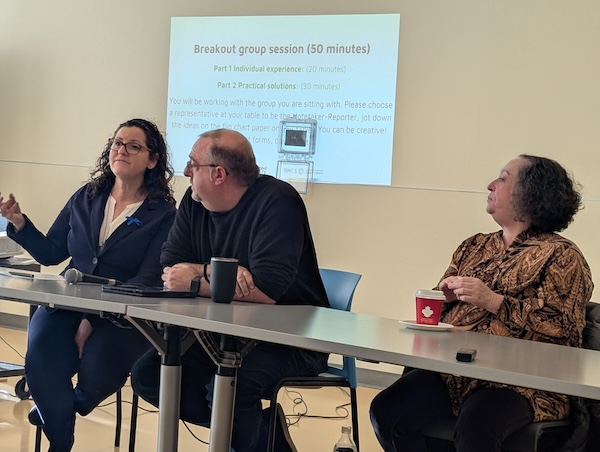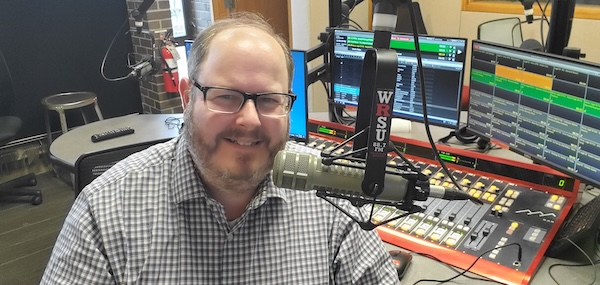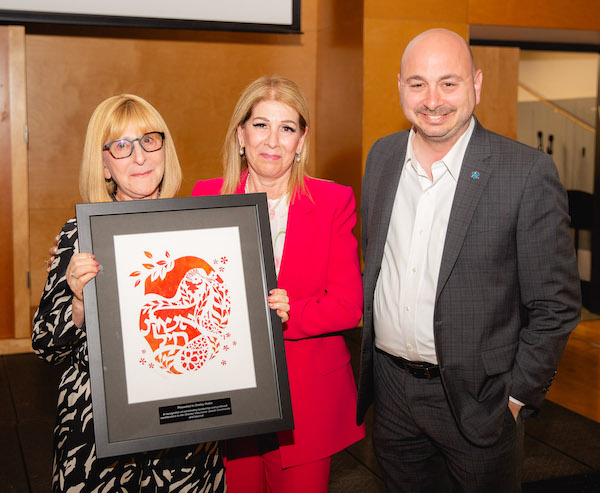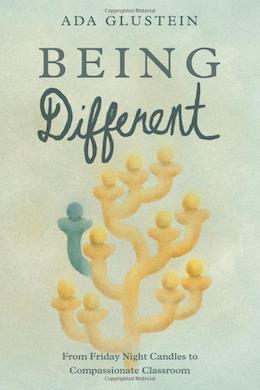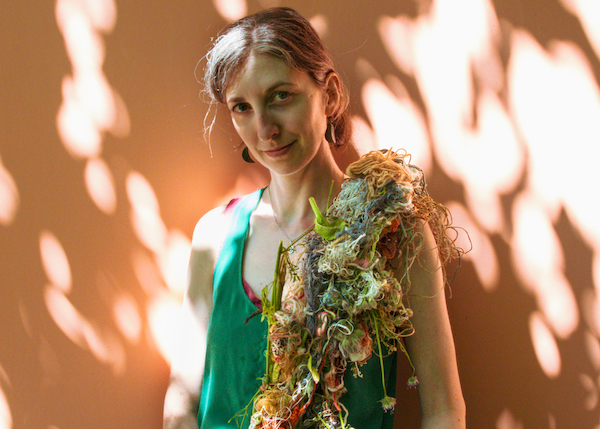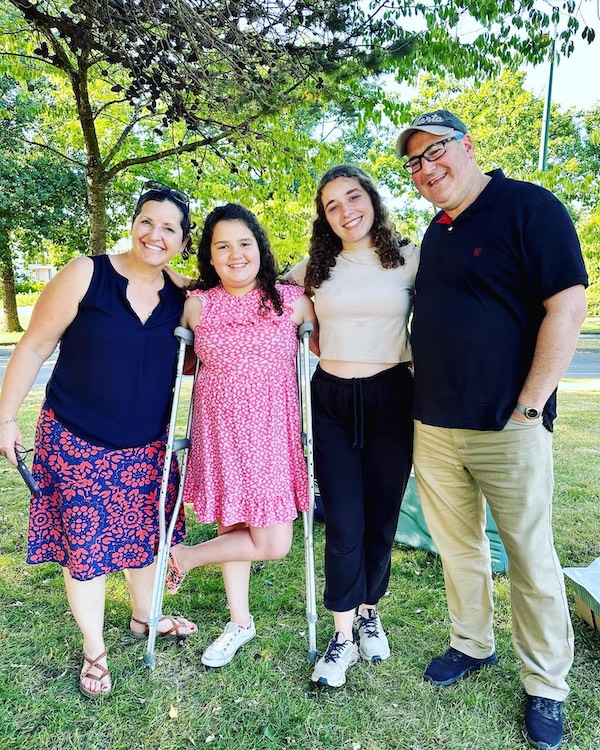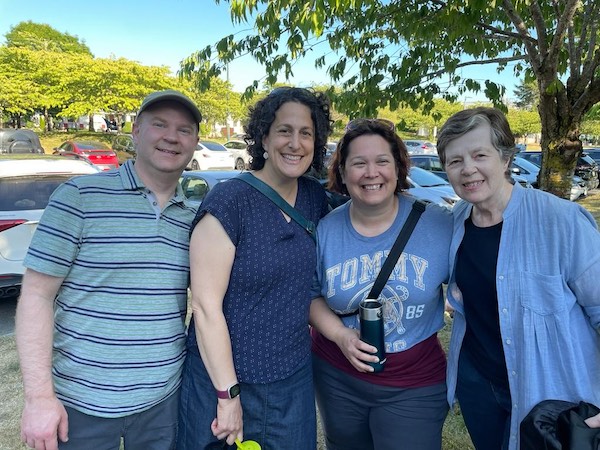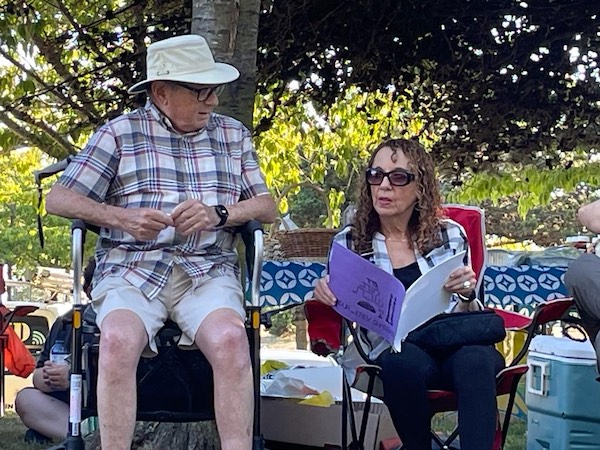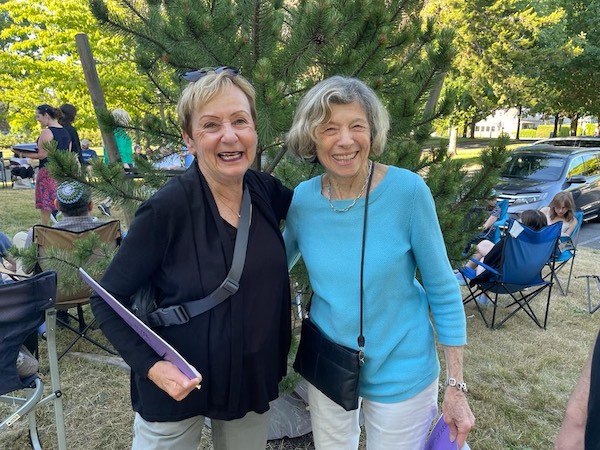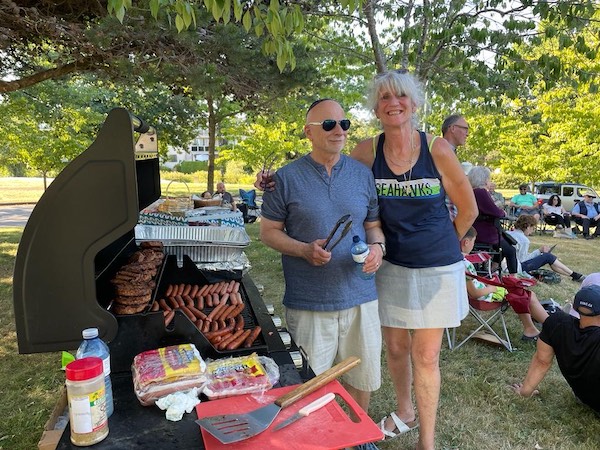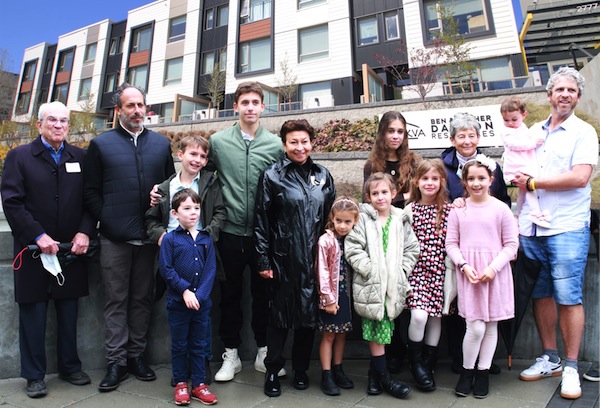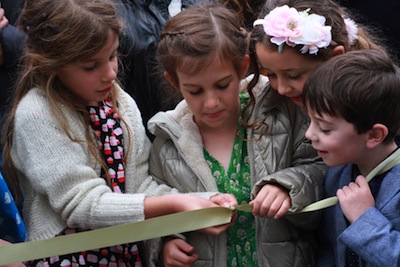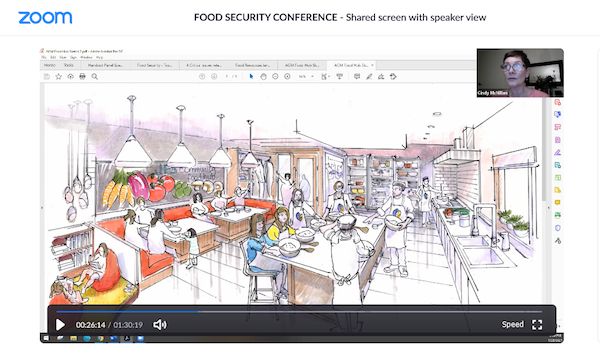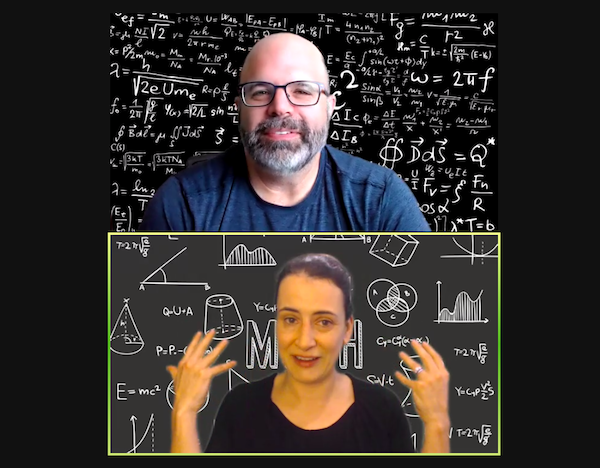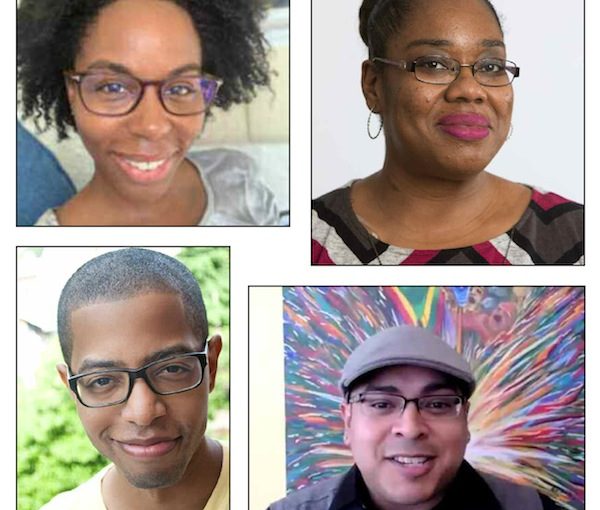Rabbi Susan Tendler at Beth Tikvah’s aron hakodesh, where two Torahs feature covers memorializing heroes lost in the latest war. (photo by Pat Johnson)
On Simchat Torah, Jews worldwide celebrate the completion of the annual Torah reading and the beginning of another cycle. The day of rejoicing, which across centuries has been marked with often ecstatic festivities, is a time of dancing and spiritual uplift. How, though, do Jews celebrate this day after Oct. 7? The mass murders and litany of horrors perpetrated on Simchat Torah 5784 cast a pall over the occasion.
Rabbi Susan Tendler of Richmond’s Beth Tikvah Congregation expressed the emotional challenge of marking the festive holiday in the changed world.
“I can get through Oct. 7,” she said, “but how am I supposed to joyfully sing and dance on Simchat Torah?”
Last summer, a friend was headed to Israel and told Tendler about the Simchat Torah Project. The friend was going to attend a ceremony at the Kotel, the Western Wall, with family members of individuals killed on Oct. 7 and in the ensuing war. At the ceremony, specially crafted Torah covers would be transferred to individuals from around the world, who would carry them back to their congregations.
Each cover has the name and date of death of the person it commemorates. So far, 635 Torah covers have found homes in 525 congregations in 287 cities in 31 countries. Two of those are in Beth Tikvah’s ark. Another is at Congregation Schara Tzedeck in Vancouver.
The project is inspired by ancient and modern words. King Solomon declared: “There is a time for everything under the heavens … a time to mourn, and a time to dance.” More recently, Israelis, in defiance of the enemy’s determination to break their national spirit and in emphatic solidarity with those murdered at the Nova music festival, declare, “We will dance again.”
For Tendler, the resonance was crystal clear. With most of the other congregational rabbis in Metro Vancouver, she was part of a trip to Israel in December 2023, which included an emotional visit to the Nova site, where 364 young people were murdered and crimes against humanity were perpetrated, including torture and rapes.
At the same time, in Tel Aviv, the exhibition commemorating the Nova festival pogrom was just opening and everywhere the rabbis saw the defiant declaration, “We will dance again.”
When Tendler heard about the Simchat Torah Project, it was the answer she had been seeking.
“I thought, that’s the pathway for me to be able to breathe and dance again on Simchat Torah,” she said. “On Simchat Torah, as we lifted up the sefer Torah, we would symbolically be lifting up those human beings and enabling them to dance again.”
The rabbi’s family and another family, Mindy Zimmering and Allan Seltzer, purchased a Torah scroll in honour of the bat mitzvah of Daniella Sadoff, the daughter of Tendler and her husband Ross Sadoff. The Beth Tikvah community united to provide a home for a second cover.
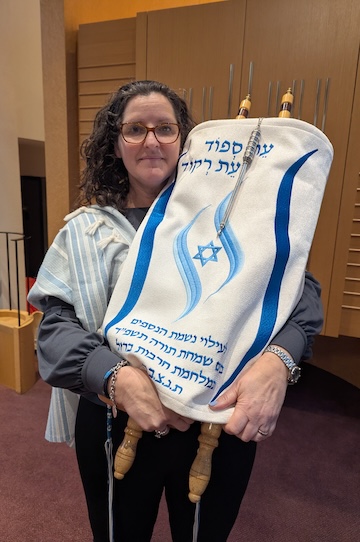
One of the covers honours the life of Itamar Shemen, a 21-year-old medic in the Israel Defence Forces who fell in battle on Dec. 23, 2023. He was also a volunteer for Magen David Adom and was known to spend his days off volunteering to help the emergency responders.
The other cover is dedicated to Ermias Mkurio, a 19-year-old known for his leadership and constant smile. He died a national hero on May 10, 2023.
The Torah covers note the date of death and not the date of birth because, as Tendler describes Jewish tradition, it is the totality of a life that is marked on a yahrzeit.
“We’ve done nothing when we come into this world,” she said. “But the day of our death is about the culmination of the life we’ve lived and our deeds and our legacy.”
The two Torah scrolls – blue lettering on white cloth – stand in Beth Tikvah’s aron hakodesh.
On Simchat Torah, it was these two Torahs that the community lifted first and foremost.
“We wanted to make sure that these were the ones that were lifted the highest and that sense of connection, that sense that it’s up to us to ensure that these individuals are still rising and still connected and that their lives were not for want or that they are quickly forgotten but instead they are still impacting us and they are still dancing and they are still teaching us,” she said.
“The symbolism of having brought out the scrolls and people going and kissing them was incredibly emotional,” she said. “Watching people, knowing that these are very much in memory of people who have fallen for the state of Israel, recognizing what we are doing, and having these individuals symbolically pass around the congregation, and people finding holiness and treating them with holiness and respect, reaching out to kiss them, to interact, to engage with them, recognize them, and knowing that, no, they’re not here, but symbolically they are with us, and we are grateful and we are moved and we are humbled by your service, by the sacrifice of your life, that you’re still here with us and we are going to continue to keep your memory alive, brought many of us to tears.”


